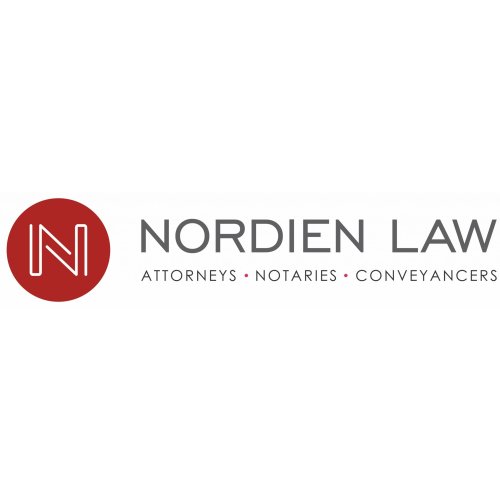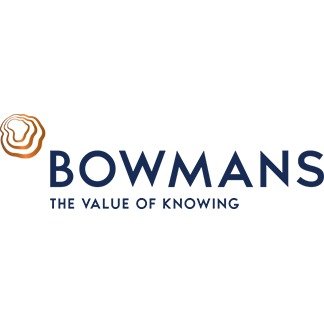Best Project Finance Lawyers in Cape Town
Share your needs with us, get contacted by law firms.
Free. Takes 2 min.
List of the best lawyers in Cape Town, South Africa
About Project Finance Law in Cape Town, South Africa
Project finance refers to the financial and legal structuring required to fund large infrastructure and development projects such as energy plants, roads, ports, and public services. In Cape Town, project finance is a fundamental tool for delivering critical infrastructure by leveraging partnerships between the public and private sectors. It involves creating complex agreements to allocate risks and manage investments over long timelines, making legal guidance essential at every step. Local and international investors, developers, and financiers regularly participate in project finance deals in the region, aiming to balance economic growth with regulatory compliance.
Why You May Need a Lawyer
Project finance transactions involve multi-layered contracts, significant capital commitments, detailed due diligence, and strict regulatory approvals. You may need a lawyer in the following situations:
- Drafting and negotiating project agreements with lenders, contractors, government entities, and other stakeholders
- Assessing and mitigating legal and regulatory risks affecting your project
- Advising on cross-border investment and financing structures, especially for international partners
- Achieving compliance with Cape Town’s environmental, planning, and procurement laws
- Resolving disputes or renegotiating terms as projects proceed or when unanticipated issues arise
- Securing licenses, permits, and regulatory approvals from local authorities
- Structuring Public Private Partnerships (PPPs) or Build-Operate-Transfer (BOT) models
A lawyer with expertise in project finance will help safeguard your interests and guide the project to successful completion.
Local Laws Overview
Several key legal frameworks and local statutes govern project finance in Cape Town:
- Public Finance Management Act (PFMA) and Municipal Finance Management Act (MFMA): These regulate the financial management and accountability of public sector projects, particularly regarding public sector partnerships.
- Companies Act: Governs the incorporation and operation of special purpose vehicles (SPVs) commonly used in major project finance structures.
- National Credit Act and Financial Sector Conduct Authority Regulations: Oversee lending practices, borrower protection, and the rules for both domestic and international financing.
- South African Environmental Laws: Environmental Impact Assessments (EIAs) are required for many large-scale projects, ensuring compliance with both national and local standards.
- Procurement Legislation: The Preferential Procurement Policy Framework Act (PPPFA) and related municipal procurement rules apply to public sector projects.
- Exchange Control Regulations: The South African Reserve Bank sets rules on foreign investment, currency exchange, and repatriation of profits, affecting the structuring of cross-border projects.
Each project structure is unique, and local legal requirements may vary based on the location, type, and size of the project. This is why professional legal advice is crucial.
Frequently Asked Questions
What is project finance, and how does it differ from corporate finance?
Project finance is a financing method in which a project’s assets, rights, and interests serve as collateral rather than general corporate assets. Lenders largely rely on the projected cash flows of the project for repayment rather than the creditworthiness of the project sponsors.
What types of projects commonly use project finance in Cape Town?
The most common include energy plants, transportation and logistics infrastructure, water and sanitation projects, and large public service buildings.
What are Public Private Partnerships (PPPs)?
PPPs are collaborations between government entities and private sector companies to finance, build, and operate infrastructure projects, sharing both risks and rewards.
Are there specific laws governing project finance in Cape Town?
There is no single law, but several statutes and regulations influence project finance, including the PFMA, MFMA, Companies Act, and sector-specific regulations.
How does the legal process for obtaining permits and approvals work?
Projects must comply with environmental and zoning laws. This typically involves submitting detailed applications, environmental impact studies, and following local municipality processes. A legal advisor experienced in local requirements can streamline this process.
Can foreign investors participate in project finance deals?
Yes, Cape Town welcomes foreign investment, but transactions may require compliance with exchange control regulations and permission from the South African Reserve Bank.
What are Special Purpose Vehicles (SPVs), and why are they important?
SPVs are business entities created to isolate financial risk. In project finance, SPVs own and operate the assets and liabilities of a specific project, separating the project from the sponsors’ core business.
What risks should I be aware of in project finance transactions?
Risks include regulatory changes, currency fluctuations, construction delays, cost overruns, and changes in market demand. Lawyers help identify and mitigate these risks through contract clauses and regulatory compliance.
When are government guarantees needed?
Government guarantees are sometimes used in PPPs or strategic projects to encourage investment by providing more security to lenders and investors.
How long does it take to close a typical project finance deal in Cape Town?
The timeframe varies widely, depending on project complexity and regulatory approvals. Large projects might take anywhere from several months to over a year to reach financial close.
Additional Resources
Individuals and businesses seeking more information or assistance can consult the following resources:
- National Treasury of South Africa - for PPP guidelines and policy documents
- City of Cape Town Municipality - for local permits, zoning, and environmental compliance contacts
- South African Reserve Bank - for information on exchange controls and foreign investment requirements
- Department of Trade, Industry and Competition (DTIC) - for investment incentives, regulations, and project support
- Financial Sector Conduct Authority (FSCA) - for finance and regulatory compliance guidance
- South African Law Society - to locate qualified legal practitioners specializing in project finance
Next Steps
If you are considering embarking on a project finance venture in Cape Town, South Africa, here are recommended next steps:
- Identify the scope and objectives of your project
- Conduct a preliminary review of legal and regulatory requirements for your project type and location
- Gather initial documentation, including project proposals, financing needs, and development plans
- Engage a lawyer or law firm with experience in project finance law within South Africa, particularly those familiar with Cape Town-specific regulations
- Work with your legal advisor to structure the deal, negotiate contracts, and ensure full compliance with all relevant laws and regulations
- Maintain ongoing legal support throughout project development, financing, and operation phases for continued compliance and risk management
Professional legal advice will help you avoid costly pitfalls, expedite necessary approvals, and protect your investment throughout the lifecycle of your project in Cape Town.
Lawzana helps you find the best lawyers and law firms in Cape Town through a curated and pre-screened list of qualified legal professionals. Our platform offers rankings and detailed profiles of attorneys and law firms, allowing you to compare based on practice areas, including Project Finance, experience, and client feedback.
Each profile includes a description of the firm's areas of practice, client reviews, team members and partners, year of establishment, spoken languages, office locations, contact information, social media presence, and any published articles or resources. Most firms on our platform speak English and are experienced in both local and international legal matters.
Get a quote from top-rated law firms in Cape Town, South Africa — quickly, securely, and without unnecessary hassle.
Disclaimer:
The information provided on this page is for general informational purposes only and does not constitute legal advice. While we strive to ensure the accuracy and relevance of the content, legal information may change over time, and interpretations of the law can vary. You should always consult with a qualified legal professional for advice specific to your situation.
We disclaim all liability for actions taken or not taken based on the content of this page. If you believe any information is incorrect or outdated, please contact us, and we will review and update it where appropriate.















